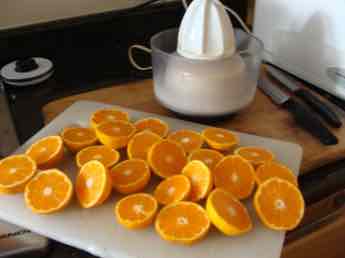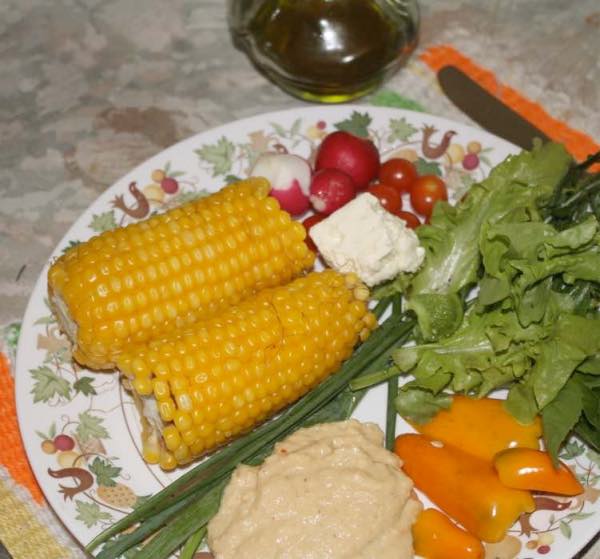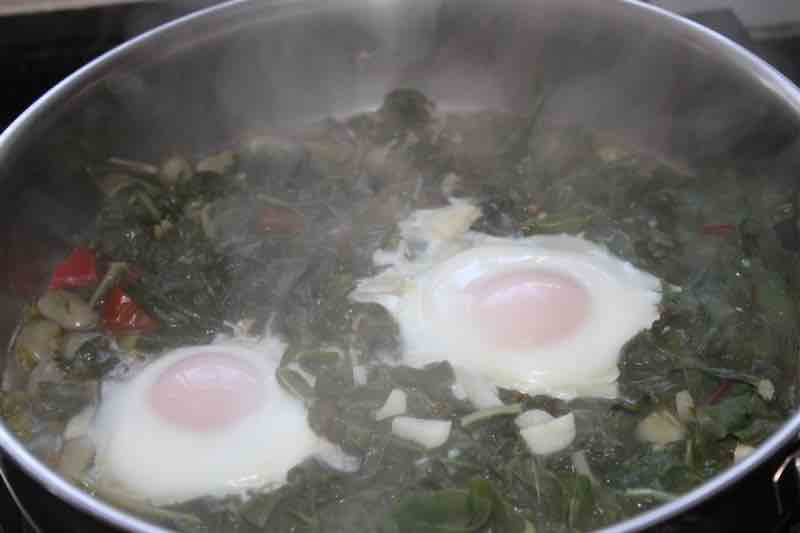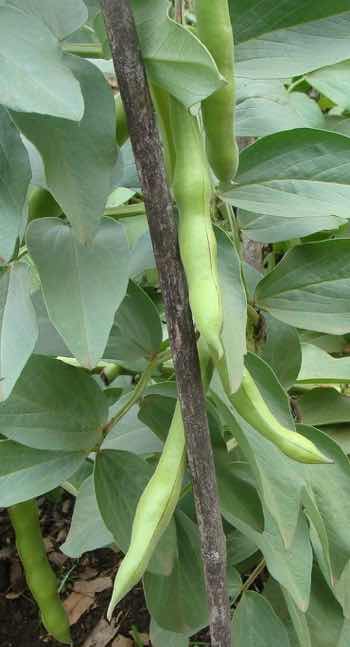- Bernard Preston homepage
- Citrus
- Beta-cryptoxanthin
Beta-cryptoxanthin
Beta-cryptoxanthin is an antioxidant found in citrus, apples and egg yolks. It plays a pivotal role in the prevention of dementia; it's in papaya and butter too. Notice the yellow colour of these foods; a sure sign of important phytonutrients.
It is a carotenoid along with lutein and zeaxanthin, known for their ability to protect the brain from aging; what scientists call oxidative-stress. These phytonutrients help mop up dangerous free radicals that cause cell damage.
BC belongs to a class of carotenoids known collectively as xanthophylls; it is twice as effective as its cousins that help guard against age-related dementia.

Researchers followed a group of people for 16 years looking for foods that gave protection against dementia. All three of these carotenoids reduced the risk; but beta-cryptoxanthin was doubly powerful.
Unfortunately but not unexpectedly, they found little benefit from supplements of beta-cryptoxanthin in preventing dementia; we have to get it from our food.
"Consumption of beta-cryptoxanthin and other carotenoids leads to the hypothesis that inhibition of oxidative damage might have beneficial effects on preventing dementia."
- Karolinska Institute, Stockholm[1]
Beta-cryptoxanthin
Beta-cryptoxanthin is an important carotenoid in fruit; it can be converted in the body into retinol, also known as vitamin A.
Thus beta-cryptoxanthin is called provitamin A.
Of equal concern is that half a million children become blind every year due to a deficiency of vitamin A. It also gives protection against malignant lung tumours.
Since beta-cryptoxanthin from supplements has little value, let us consider the best sources of this provitamin A from food.
An important consideration is that some of these fruits are also high in sugars that will raise blood-glucose in those who are insulin resistant; nearly a half of those eating typical grocery store food. Interesting research shows that a short brisk walk after a meal high in carbs will help prevent this.
Insulin resistance and inflammation are unequivocally associated with the development of diabetes and cardiovascular disease[5].
Citrus
Citrus is one of the best sources of beta-cryptoxanthin not only in the juice but also the pulp; and the zest too. Optimally we should be enjoying a wide range of these foods on a daily basis; half a grapefruit for breakfast and an orange mid morning instead of a cola would be perfect. Add to that a lemon and olive oil dressing on a salad; then one would have complete protection.
As an aside avoid commercial salad dressings; they usually add nasty chemicals so that the oil and water fractions do not separate. Instead spend three seconds giving the bottle a shake.
- What is emulsifier in food? And why should we avoid them?
As a general rule more than half of the nutrients in citrus are found in the pulp. We are short-changing ourselves by using the juice only.
And of course citrus is a rich source of another important antioxidant; vitamin C. However the research shows that from tablets it too does not help prevent dementia; but from fruit it contributes to the work of beta-cryptoxanthin.
These compounds work in harmony with each other.
And there are almost certainly others that still have not been isolated
and recognised for their role in preventing Alzheimer's disease and its
cousins. Enjoy many coloured foods daily.
"This study provides Class II evidence that incident all-cause dementia was inversely associated with serum lutein, zeaxanthin and BC levels."
- Neurology[2]
Apples
It's no myth than an apple a day keeps the doctor away; there is a plethora of research proving that it helps protect us against lung dysfunction, raised cholesterol and now dementia too. Beta-cryptoxanthin is but one of many active phytonutrients in this wonderful fruit.
Apples are also an excellent source of pectin, the soluble fibre[3] that greatly aids the friendly flora in the gut known as the microbiome. There is strong research too that probiotics such as kefir inhibit the pathogenic E. Coli bacteria that have been fingered in dementia.
This apple salad is a gem.
Every family should know how to make kefir; it's the simplest and cheapest of the probiotics.
Kefir is also an excellent source of calcium. Remember that taking the supplement increases the incidence of cardiovascular disease; but not so from your food.
Egg yolks
Food fashions just like those with clothes are so bad that we have to change them every year. One day egg yolks are strictly verboten, high in cholesterol, the next the heart association and neurologists are recommending we eat them regularly.
The beta-cryptoxanthin in egg yolks is one of the reasons. The choline of course is another; it too has a role in reducing dementia by breaking down toxic homocysteine, an amino acid metabolite.
There's nothing simple about nutrition. Literally tens of thousands of complex chemical reactions are continuing all the time in the well-tuned body; they absolutely require a rich and varied diet for these important substances.
Free range eggs have been shown to be far richer in omega-3 for example; and many other compounds. Hens too need to enjoy a wide and varied diet.
Butter
Butter too is another food that has been subjected to fashion. Margarine of course is completely and permanently down and out because of the toxic trans fats. A very large meta-analysis of all the research proves that our friendly dairy spread should never have been sent to Coventry; except perhaps for those with known heart disease.
Cholesterol from your food barely affects the levels in the blood; it's the refined carbs that do that damage.
So butter is back.
Papaya
Papaya is another of the brightly-coloured fruits that are all rich in these very important nutrients.
But it is high in natural sugars so needs to be eaten in moderation by the obese and diabetics; small portions. Keep the glycemic load down.
Take a short walk after the meal.
Yellow maize
Yellow maize is also a rich source of beta-cryptoxanthin; olive oil increases the absorption of these carotenes in the gut.
 Yellow corn and orange peppers for beta-cryptoxanthin
Yellow corn and orange peppers for beta-cryptoxanthinLutein and zeaxanthin
Lutein and zeaxanthin are definitely not the poor cousins of beta-cryptoxanthin; they are the two phytochemicals that help prevent another equally serious disease of the elderly. Adult onset blindness due to macular degeneration is largely preventable by eating foods rich in these carotenes.
Interestingly the optic nerve that supplies the eye is actually considered to be part of the brain; so in some ways blindness is strongly related to dementia.
Dark-green leafy vegetables are the richest source with kale taking the laurel; peas, corn on the cob and the family of squashes too.
Chaote squash and butternut are two of our favourites.
Dementia

There are many types of dementia but it is important to remember that it is the decline in memory that is critical. If you once could follow recipes but no longer are able to, that is of serious concern.
Forgetting someone's name and remembering it later is quite normal.
Whilst Alzheimer's accounts for the great majority of cases there are other causes.
Parkinson's disease and even a B12 deficiency can also cause dementia.
Our solution to this conundrum is what we call Eggs Parkinson's disease that we enjoy for breakfast for much of the year. It is a great source of beta-cryptoxanthin and vitamin B12; it is also rich in another important phytochemical called levodopa in the broad beans.
It
is the precursor of dopamine; a deficiency of this neurotransmitter is
the cause of Parkinson's disease and many other conditions such as
adult-onset blindness.
WebMD gives an excellent review of the 10 early signs of Alzheimer's Disease[6].
Raised blood glucose and dementia
For those anxious about the neurodegenerative diseases in the family, obviously food sources of beta-cryptoxanthin are singularly important; so are broad beans.
But raised blood glucose can undermine everything no matter how many lemons a person consumes.
The standard test for blood glucose is known as the HbA1c[4]. The optimal level is 5.6% or less; and some are saying lower still.
- 5.6% or lower is optimal.
- 5.6 - 6.4% signifies prediabetes
- 6.5% or higher represents full-blown diabetes.
Broad beans

It is almost impossible to purchase broad beans, the only common source of levodopa; you have to grow them yourself. Enjoyed freshly-harvested the young pods are a delicious legume, also rich in vegetable protein.
It's interesting that Blue Zone longevity points strongly to broad beans in the diets of all five of these fascinating places in the world where people live such long and zestful lives.
How to plant broad beans is not difficult; they do need to be staked.
Other important ways to lessen the risk of dementia
- When hearing loss starts to seriously affect interactions with family and friends it is definitely time for an aid. Consider the OTC Lexi Lumen model; less than half the cost and more effective[7].
- Caucasian males are particularly prone to hair in the ears preventing wax from falling out. Plucking and snipping is vital as is an annual lavage.
- Chewing food thoroughly is associated with a lower level of dementia; perhaps because it improves the health of the gums and lessens the chance of an infection by P. gingivalis that also affects the brain. Daily flossing too removes food particles from between the teeth.
- Keeping active and strong by walking is associated with lower levels of the neurodegenerative diseases; and enjoying hobbies like gardening.
- Keeping that glucose monitor, HbA1c below 5.6 is also strongly associated with better insulin sensitivity and reduced dementia; that means limiting refined carbs and sugar.
- Enjoying daily aerobic exercise and limiting alcohol both lead to more restful sleep.
- Make certain that the nutrients required to lessen homocysteine are daily in the diet; it's a toxic breakdown product of protein metabolism.
"There is increasing evidence that exposure to plants and green space, and particularly to gardening, is beneficial to mental and physical health."
- Clinical Medicine (PMC6334070)
Low animal fat diets
There are still many calls for a low animal-fat diet; that would mean no butter or egg yolks, two of the rich sources of beta-cryptoxanthin. It is in part because cardiovascular disease is strongly associated with dementia.
Current research however is fingering refined carbs as the cause of the inflammatory process leading to vascular disease from raised blood glucose; and a lack of dietary fibre that supports the microbiome.
It is our understanding that strictly limiting the refined carbohydrates like sugar and cake flour would be far more beneficial in helping prevent dementia than cutting out butter and eggs from our diets.
Ketogenic diets
The ketogenic diets would also likely lead you to limit many of the carbohydrate sources of beta-cryptoxanthin. That would have another negative effect; reducing the large amounts of fibre required for the microbiome.
It is our contention that diet is a dirty four-letter word. Research shows that none of them work. Rather we follow the dictum of Hippocrates; let your food be your medicine. So we eat many coloured vegetables and fruit even though they are rich in starch; and are not afraid of eggs, cream and butter.
Then you can be absolutely assured of a plentiful supply of the phytonutrients like beta-cryptoxanthin that your body demands for a long and healthy life.
But do make absolutely certain that your HbA1c is 5.6 or less.
On a personal note
Despite enjoying prodigious amount of starch daily my own A1c test is 5.4; quite normal. I attribute this to almost zero refined carbs, no more than a teaspoon or two of sugar each day and daily consumption of citrus rich in beta-cryptoxanthin; and taking regular short walks after starchy meals.
- Best Antioxidants to Prevent Age-Related Dementia Identified
- Association of Serum Antioxidant Vitamins and Carotenoids With Incident Alzheimer Disease and All-Cause Dementia Among US Adults
- What is a dietary fiber?
- What is HbA1c, and why does it matter?
- Prevalence of Insulin Resistance in an Urban South African Population
- 10 early signs of Alzheimer's dementia @ WebMD
- Long-Term Outcomes of Self-Fit vs Audiologist-Fit Hearing Aids
When browsing use right click and "Open Link in New Tab" or you may get a bad gateway signal.
Newsletter
Our newsletter is entitled "create a cyan zone" at your home, preserving both yourself and Mother Earth for future generations; and the family too, of course. We promise not to spam you with daily emails promoting various products. You may get an occasional nudge to buy one of my books.
Here are the back issues.
- Lifestyle and ideal body weight
- What are ultra-processed foods?
- Investing in long-term health
- Diseases from plastic exposure
- Intensive lifestyle management for obesity has limited value
- A world largely devoid of Parkinson's Disease
- The impact of friendly bacteria in the tum on the prevention of cancer
- There's a hole in the bucket
- Everyone is talking about weight loss drugs
- Pull the sweet tooth
- If you suffer from heartburn plant a susu
- Refined maize meal and stunting
- Should agriculture and industry get priority for water and electricity?
- Nature is calling
- Mill your own flour
- Bake your own sourdough bread
- Microplastics from our water
- Alternative types of water storage
- Wear your clothes out
- Comfort foods
- Create a bee-friendly environment
- Go to bed slightly hungry
- Keep bees
- Blue zone folk are religious
- Reduce plastic waste
- Family is important
- What can go in compost?
- Grow broad beans for longevity
- Harvest and store sunshine
- Blue zone exercise
- Harvest and store your rainwater
- Create a cyan zone at your home
Did you find this page interesting? How about forwarding it to a friendly book or food junkie? Better still, a social media tick would help.
- Bernard Preston homepage
- Citrus
- Beta-cryptoxanthin
Address:
56 Groenekloof Rd,
Hilton, KZN
South Africa
Website:
https://www.bernard-preston.com